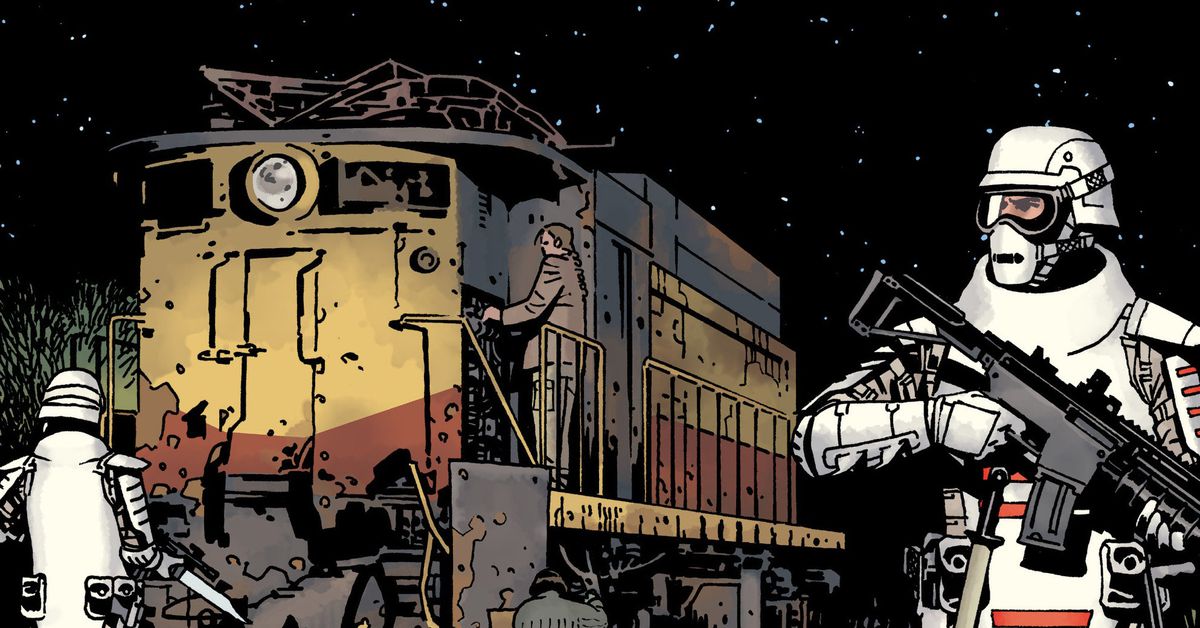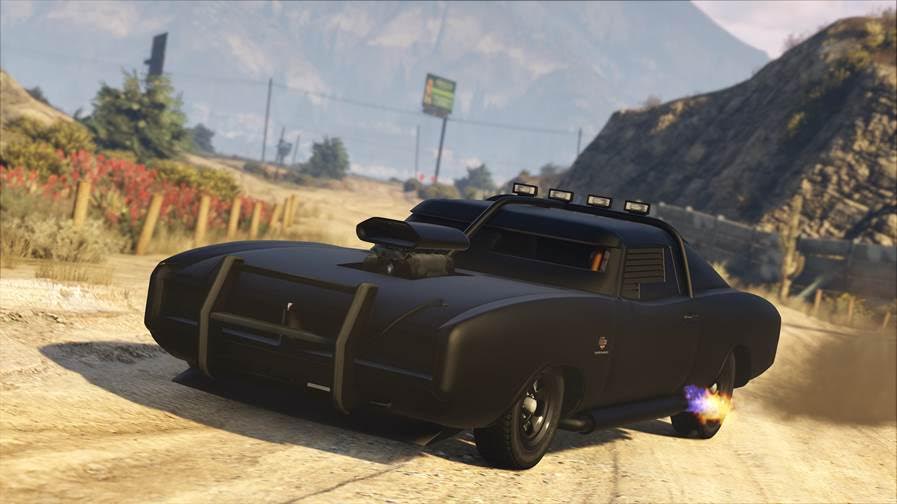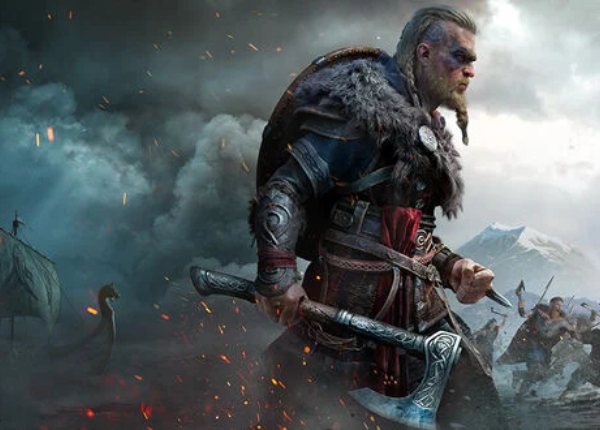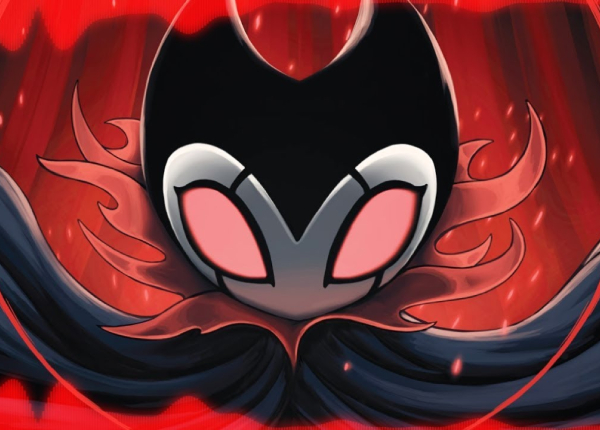2018 was the year The Walking Dead comic rejuvenated itself

The Walking Dead is a cross-media juggernaut, with successful television shows, video games, novels, board games and, soon, three feature-length TV movies starring Andrew Lincoln as Rick Grimes. Given that smorgasbord of content, it can be easy to forget that the biggest moments of AMC’s The Walking Dead are ripped directly from a comic series.
Robert Kirkman, Tony Moore and Charlie Adlard’s story launched the whole thing way back in 2003, and their comic is still going today. And as ratings on The Walking Dead and Fear the Walking Dead continue to slide, The Walking Dead comic has marked its 15th year by quietly retaking its place as the most relevant — and most boundary-pushing — zombie story in the franchise.
It’s become a standard theme of post-apocalyptic zombie fiction at this point, but the goal of The Walking Dead has always been to show that what man is capable of doing to each other is much worse than any fictional apocalypse. Villains like the Governor, Negan and Alpha all showed how desperate and evil man can be when the trappings of civilization are stripped away, as Rick and his band of survivors dared to overcome these evils and provide a future for humanity.
In the comic, through co-operation and collectivism, the survivors have been successful in establishing their new world: There are no villains left to defeat. But the recent introduction of a newly discovered settlement may bring that hard won victory crashing down.
:no_upscale()/cdn.vox-cdn.com/uploads/chorus_asset/file/13392669/Walking_Dead_5.jpg)
Robert Kirkman, Charlie Adlard
The Commonwealth is easily the biggest pocket of survivors in the post-zombie landscape, and its citizens live mostly comfortable lives protected from the flesh-eating threat that occasionally stumbles up against their gates. Run by Governor Pamela Milton — a title which no doubt makes any hardcore The Walking Dead fan balk, even though she seems a lot more reasonable that the Governor of Woodbury — the Commonwealth seems too good to be true, which means it definitely is.
But it’s the nature of that evil and where it comes from that makes the Commonwealth so interesting. Rick’s network of communities — Alexandria, Hilltop, the Kingdom and the Sanctuary — are places built around community, where everyone pitches in toward the benefit of the surviving human race. What you do for a living in the Commonwealth is based on what you did before the world ended. If you were a police officer, you get to be a police officer again; if you dug ditches, it’s back to ditch duty for you. It’s a strict class-based caste system, and bad things can happen if you don’t know your place.
So far, we’ve mostly seen the Commonwealth through Michonne’s perspective. After learning that her daughter Elodie survived and was living at the Commonwealth, Michonne chose to remain there; luckily for her, she was a lawyer in her past life so was instantly gifted a fancy apartment and a decent job as an attorney, but for someone so used to living on the ground, among the people, Michonne bristles at the idea that she’s “above” anyone.
The caste system of the Commonwealth is called into question when armed guards brutally beat a local man to death. That’s enough to light the fuse of unrest, leading to riots, arrests and injuries, and Michonne is ordered to defend the officers on behalf of the Commonwealth government. Rick and the survivors are as shocked by the way the Commonwealth treats its working class — as much as Governor Milton is shocked that Rick would volunteer to help clean up without a second thought.
:no_upscale()/cdn.vox-cdn.com/uploads/chorus_asset/file/13392627/Walking_Dead_3.jpg)
Robert Kirkman, Charlie Adlard
When The Walking Dead #1 launched in 2003, its selling point was that, while zombie movies usually show the initial outbreak and the chaos that follows, an ongoing comic could really dig into the days, weeks, months and years that follow. Zombies were hot in the early 2000s; Resident Evil, 28 Days Later, Shaun of the Dead, Dawn of the Dead (2004) and George Romero’s Land of the Dead all hit cinema screens between 2002 and 2004. The Walking Dead launched right in the middle of that craze, and offered zombie-fanatics with the kind of storytelling they couldn’t get anywhere else.
With Robert Kirkman’s writing and Charlie Adlard’s art, we’ve followed Rick Grimes, his son Carl and an ever-changing cast of survivors for the last 15 years — compared to AMC’s The Walking Dead’s eight — and watched them grow in a way unforeseen in any other zombie media. The Walking Dead has surpassed the post-apocalypse, it’s post-post-apocalyptic. The survivors are coming to terms with their responsibility to decide the future of how humanity operates, not just how their own lives do.
While The Walking Dead has always held a mirror up to our own world — as all good zombie fiction does — it’s never been clearer or as pointed as it has been in the past year of the comic. We’re so used to the way Rick’s communities operate for the good of survivors that when we’re presented with a settlement operating like how society does in our real world, it seems strange and alien.
:no_upscale()/cdn.vox-cdn.com/uploads/chorus_asset/file/13392677/Walking_Dead_9.jpg)
Robert Kirkman, Charlie Adlard
It forces us to question the caste and class based structures in our own lives and communities, and ponder if perhaps there’s a better way. The Commonwealth represents such a far shift from how we’ve come to expect survivors to live that we can’t help but see them as villains in waiting — and the community is all the more terrifying for being a reflection of our real, modern society.
The Walking Dead comic could only do this 15 years into its run. We needed to get through the struggles of Rick and every one of his allies in order to get to a point where Kirkman and Adlard could reintroduce the ways of the old world, making it seem unrecognizable, monstrous and evil. The Walking Dead has finally reached its thesis statement: that we can build a better world for ourselves, but not before we tear down the world we’ve got. The only difference is that we don’t have to worry about zombies.
[ad_2]
Source link




